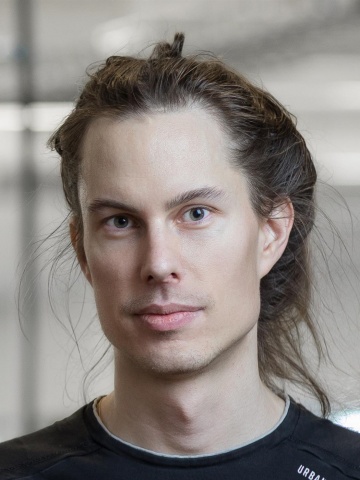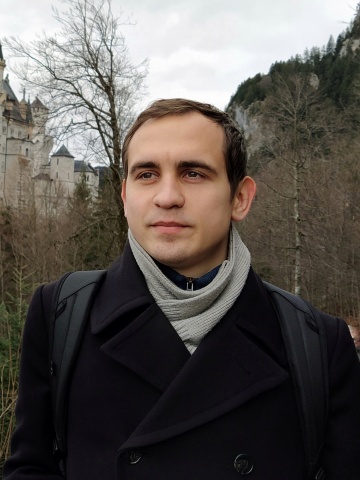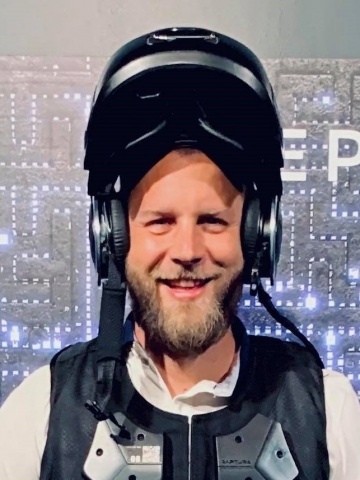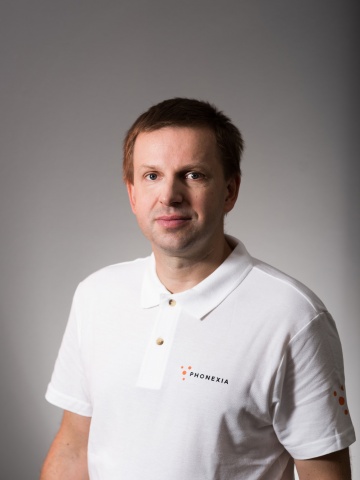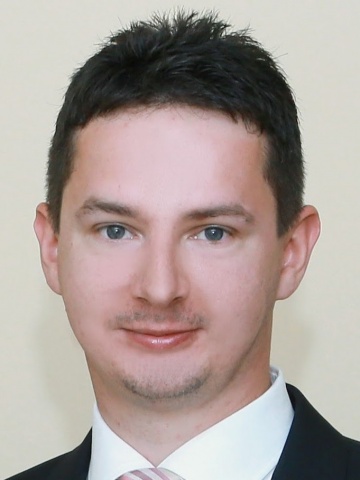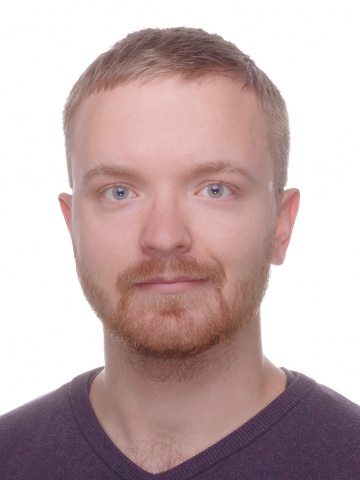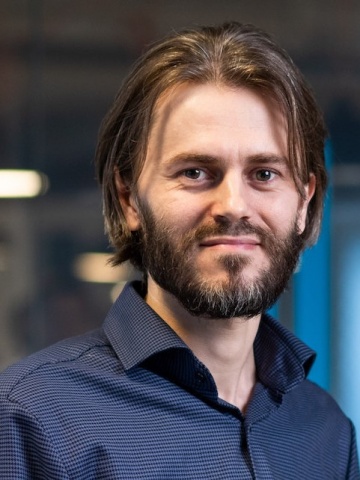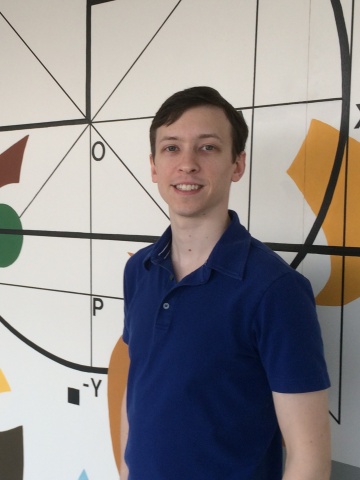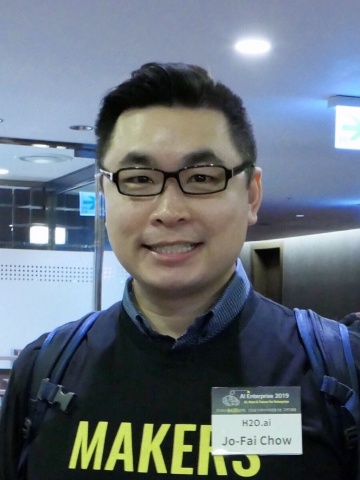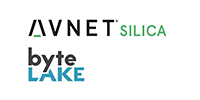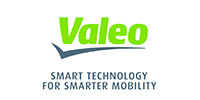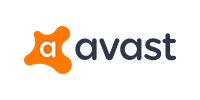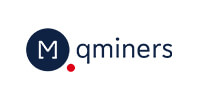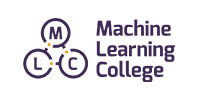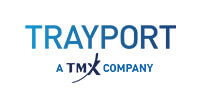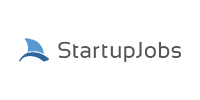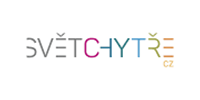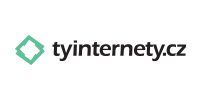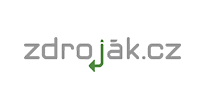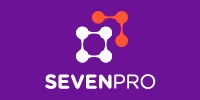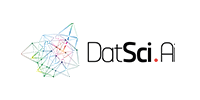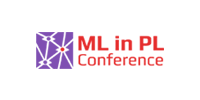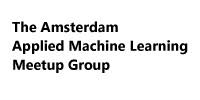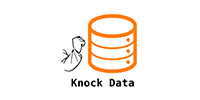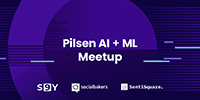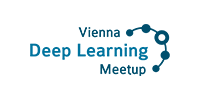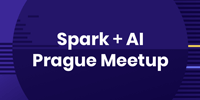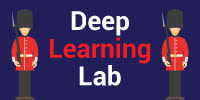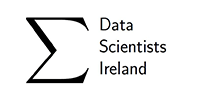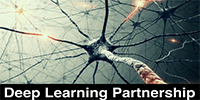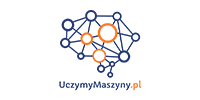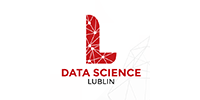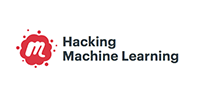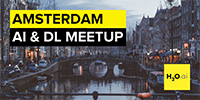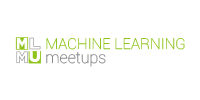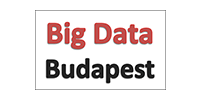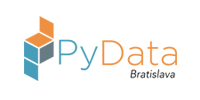Online practical conference about ML, AI and Deep Learning applications
Machine Learning Prague
– , 2021
We can't fix 2020, but a better ML Prague? That we can do!
ML Prague will run online to assure your attendance is 100% safe. This even allows us to bring you even more practical content! At the same time, this will be the most interactive ML Prague ever, including deeper discussions with our speakers after each talk, mastermind sessions, networking activities with peer-experts from the whole world, and a hackathon before the conference. Stay tuned for more information on what's coming!
Note: If you registered for ML Prague 2020, your ticket is still valid for our online conference on February 26-28, 2021. You'll find your gift below, under our conference program section.
- 1000 Attendees
- 3 Days
- 45 Speakers
- 10 Workshops
- 1 Hackathon
Phenomenal Speakers
Practical & Inspiring Program
Friday
Workshops
| Room 103 | Room 106 | Room 203 | Room 205 | Room 206 | |
|---|---|---|---|---|---|
| – |
Agile Data AnnotationRoom 103
Marek "Marx" Grac, Phalanx Come join us for our workshop and get hands-on experience with data annotation. The main goal of data annotation in Machine Learning algorithms is to make the implicit explicit so that the learning process can be improved. Even though many people see data annotation as a mundane task the process of creating guidelines and processes can be very interesting. In this workshop you will test various data annotation techniques mainly application-driven and low-cost approaches. We will also focus on how to measure the quality of the resulting data as well as test various UX principles and see how much they impact the cost-efficiency. Finally when you get bored of doing the manual part of data annotation yourself we will go through the basic legal aspects of outsourcing it. |
Automatic and Explainable Machine Learning with H2ORoom 106
Jo-fai (Joe) Chow, H2O General Data Protection Regulation (GDPR) is now in place. Are you ready to explain your models? This is a hands-on tutorial for beginners. I will demonstrate the use of open-source H2O platform (https://www.h2o.ai/products/h2o/) with both Python and R for automatic and interpretable machine learning. Participants will be able to follow and build regression and classification models quickly with H2O's AutoML. They will then be able to explain the model outcomes with various methods. |
Machine Learning in JuliaRoom 203
Kevin O'Brien, Coillte Julia is specifically designed from the start of its conception as a language for high-performance computation but at the same time highly interactive. To achieve this Julia is one of the few modern languages that relies in just-in-time (JIT) compilation via LLVM to make its code run as fast or faster than statically compiled C and fortran codes. Its modern language design has the following features: multiple dispatch Lisp-like macros dynamic types type inference built-in parallel/distributed computing lightweight threads and elegant high-level language constructs. Outline: Introduction to Julia The Julia Language Julia in Data Science Julia Interfacing with Python and R Machine Learning in Julia High-performance computing in Julia |
Data Analysis in Big Data Environment with Apache Spark and PythonRoom 205
David Vrba, Socialbakers Apache Spark became a standard for data processing and machine learning in big data environments and is popular especially for its high-level DataFrame API that allows working nicely with structured data in a very efficient way. In the first part of this workshop we will get familiar with the DataFrame API of Spark and see some challenges that you might face when processing large datasets. We will explore some advanced optimization techniques and see how to apply them to compose efficient analytical queries. In the second part of the workshop we will see how Spark can be used for machine learning and deep learning in particular. We will explore Deep Learning Pipelines - a library that integrates Spark with deep learning frameworks such as TensorFlow and Keras. |
Programming the Pepper RobotRoom 206
Aleš Horák, Informatics at Masaryk University The social robot by Softbank Robotics denoted as Pepper will be introduced. The robot hardware capabilities as well as examples of natural human-machine interaction in English and Czech (which are being developed by the team at FI MU) will be presented in detail including a tutorial on your own programming for a virtual or a real Pepper robot. The 1.2-m-tall robot is designed for social interactions with people and it is equipped with an extensive API set to detect faces mood or age and to react to their values. |
| – |
|
||||
| – |
Zero to AI: Workshop on the Wolfram LanguageRoom 103
Jon McLoone, Wolfram Research Designed by Wolfram data science experts this workshop will provide an introduction to machine learning techniques illustrated with live dynamic examples using the Wolfram Language. The workshop will walk you step-by-step through the basics of machine learning methodologies and techniques and how to apply them using the Wolfram Language. Upon completion you will come away with enough practical knowledge to immediately use the Wolfram Language for your own machine learning tasks on text data or images including supervised classification and prediction unsupervised feature identification sequence prediction and computer vision. |
Developing Autonomous Vehicles with High Fidelity SimulationRoom 106
Ashish Kapoor, Microsoft High-fidelity simulations can provide a rich platform to develop autonomy by enabling the use of AI technologies such as deep learning computer vision reinforcement learning etc. We have developed AirSim which is a simulator for autonomous vehicles built on the Unreal Engine. It is open-source cross platform and supports hardware-in-loop simulation thus allowing rapid development and testing of the system. The simulation is developed as a plugin and can be simply be dropped into any Unreal environment. AirSim supports AI development capabilities by exposing APIs to enable data logging and controlling vehicles in a platform independent manner. We will give an overview of how to use AirSim for building realistic simulation environments and doing development for quadrotors that use popular flight controllers such as Pixhawk. It is developed as a plugin that can simply be dropped in to any Unreal environment you want. We will also showcase how the system can be used to incorporate machine learning components useful for building such autonomous systems. |
Cloud-native AI on OpenShiftRoom 203
Václav Pavlín, Red Hat Ever thought of doing a cloud-native AI work? What does that even mean? This workshop will introduce you to running AI related services like Spark Seldon or Jupyter on Kubernetes as part of a project Open Data Hub. You will learn how to move your AI workloads to the cluster and implement a basic data science workflow. As Jupyter notebooks have become the de facto standard in data science we will show you how to use them and adopt some of the best practices that we’ve developed over time. |
How to Make Data-Driven Decisions: The Case for Contextual Multi-armed BanditsRoom 205
Michal Pleva, Dataclair.ai, O2 Czech Republic Supervised learning has done wonders but it’s fundamentally limited. A good prediction of customers' churn or the likelihood of new acquisition may not always help you to do what is best in a given situation. By attending our workshop you will get hands-on experience with algorithms for direct optimization of decision-making with uncertainty. We will be focusing on the special case of reinforcement learning known as Contextual multi-armed bandit problems. Those problems arise frequently in important industrial applications played a role in AlphaGo success and are very often adopted by industry leaders such as Google and Netflix. Decision making with uncertainty is a challenge so we will show you how to effectively balance between trying new things to find better solutions and repeating the behavior that works well. During the workshop you will have an opportunity to play with a linear algorithm to solve a simple problem as well as with more advanced solution involving a deep neural network to learn a latent representational feature space for a problem. |
SAS Viya & Open Source Integration focus on PythonRoom 206
Ivan Kasanicky, SAS In this course you will learn to use the Python API to take control of SAS Cloud Analytic Services (CAS) actions. You will also learn to upload data into the in-memory distributed environment analyze data and create predictive models in CAS using familiar Python functionality via the SWAT (SAS Wrapper for Analytics Transfer) package. You will then learn to download results to the client and use native Python syntax to compare models. |
Saturday,
Workshops
Welcome to ML Prague
.png)
Autonomous driving: few insights on perception and explainability
Matthieu Cord, Valeo.jpg)
Confidence Estimation Learning for Production-ready Neural Networks
Adam Blažek, Iterait.jpg)
AI-accelerated Computational Fluid Dynamics (CFD)
Krzysztof Rojek, byteLAKECOFFEE BREAK & EXPO

AI in Cardiology: detecting heart dysfunctions
Filip Plešinger, Institue of Scientific Instruments of the Czech Academy of Sciences.png)
Modular MLOps architecture built to last
Radovan Parrák, Credo.jpg)
Continuous Machine Learning
Paweł Redzyński, dvc.orgPOSTER SESSION & LUNCH
MASTERMIND SESSION: AI Safety and Value Alignment
Jan Romportl, Dataclair.ai, O2 Czech RepublicJan Kulveit, Future of Humanity Institute, University of Oxford
Ondřej Bajgar, Future of Humanity Institute, University of Oxford
MASTERMIND SESSION: Deep Learning vs. Rule-based Systems in Practical Applications
Petr Somol, AvastViliam Lisy, Avast
MASTERMIND SESSION: From knowledge graphs to drug development
Jakub Kotowski, MSD ITPavel Vacha, MSD IT
Michael Wurst, MSD IT
Petr Mejzlik, MSD IT
Nik Vostrosablin, MSD IT
MASTERMIND SESSION: Learning predictors with limited labels
Jan Brabec, CiscoPavel Procházka, Cisco
Tomáš Jirsík, Cisco
MASTERMIND SESSION: Artificial Intelligence (AI) accelerating industrial Computational Fluid Dynamics (CFD) simulations
Marcin Rojek, byteLAKEMariusz Kolanko, byteLAKE
Damo Vedapuri, Tridiagonal Solutions
Robert Daigle, Lenovo Data Center
Andrzej Jankowski, Intel Corporation
Valerio Rizzo, Lenovo Data Center
Ashish Kulkarni, Tridiagonal Solutions
COFFEE BREAK & EXPO
.png)
Challenges of Machine Learning Under Distribution Shift
Silvestr Stanko, Qminers.jpg)
AIOPS, Machine Learning and Anomaly detection, our experience implementing a virtual assistant engine to detect and triage anomalous behavior in a data center
Kirill Maiantsev, Broadcom.jpg)
Expertise recommendations - A supervised approach that surmounts incomplete datasets
Jeremy Jonas, McKinsey & CompanyFelipe Vianna, McKinsey & Company
COFFEE BREAK & EXPO
.png)
Understanding and mitigating unwanted bias in Artificial Intelligence
Karthikeyan Natesan Ramamurthy, IBM Research AI.jpg)
Ensuring Machine Learning Fairness with Monotonic Constraints
Serg Masís, Syngenta.jpg)
Private Federated Learning
Vojta Jína, AppleAnnouncement of the hackathon winners
Ivan Kasanicky, SAS Sunday,
Conference day 1

Antibiotics discovery and design of mRNA- and protein-based therapeutics by Machine Learning and Optimization strategies
Nik Vostrosablin, MSD IT.jpg)
Harnessing relational learning for explainable learning
Tomas Pevny, Avast.jpg)
How to build the perfect model of a human according to their voice
Petr Schwarz, PhonexiaCOFFEE BREAK & EXPO
.jpg)
The Ethical aspects of Machine Learning
Uri Eliabayev, Machine and Deep Learning Israel.jpg)
ML powered Crime Prediction
Or Herman-Saffar, Dell.jpg)
How We Foster Superhuman Analysts
Filip Dousek, WorkdayPOSTER SESSION & LUNCH
MASTERMIND SESSION: Recent advancements in Speech and Language processing. How research is being applied in commercial projects today
Dima Turchyn, MicrosoftDmitry Soshnikov, Microsoft
Mikhail Burtsev, Moscow Institute for Physics and Technology
Ádám Feldmann, University of Pecs
Panos Periorellis, Microsoft
Kshama Pawar, Microsoft
MASTERMIND SESSION: Operationalizing Analytics & ModelOps
Ivan Kasanicky, SASJan Černý, SAS
Dalibor Šrámek, SAS
Ľubomír Boďa, SAS
MASTERMIND SESSION: How to control and achieve Data Quality
Lukáš Matějka, LundegaardPetr Šmíd, PEKAT VISION
Michal Štefánik, Gauss Algorithmic
Lukáš Vrábel, thevertical.ai, keyless.io
MASTERMIND SESSION: Computer Vision applications in Manufacturing Industry
Pavel Dvořák, Konica MinoltaLukas Havlicek, Konica Minolta
Matej Dusik, Konica Minolta
Martin Jahoda, Konica Minolta
Branislav Hesko, Konica Minolta
MASTERMIND SESSION: Machine learning in the field of social media
Peter Krejzl, SocialbakersJan Rus, Socialbakers
Jakub Slovan, Socialbakers
Lenka Šimková, Socialbakers
Simona Kolenčíková, Socialbakers
COFFEE BREAK & EXPO
.jpg)
Complex Systems for AI
Tomas Mikolov, CIIRC CTU Prague.png)
AutoML with Keras Ecosystem
Haifeng Jin, Google.jpg)
Deep Neural Networks Abstract Like Humans
Hava Siegelmann, University of Massachusetts AmherstCOFFEE BREAK & EXPO
.jpg)
Building Safety Mechanisms in Autonomous Systems
Ashish Kapoor, MicrosoftPanel Discussion
Ashish Kapoor, MicrosoftKarthikeyan Natesan Ramamurthy, IBM Research AI
Tomas Mikolov, CIIRC CTU Prague
Hava Siegelmann, University of Massachusetts Amherst
Closing Remarks
Have a great time A great gift for this year’s attendees
Did you get your ticket before November 25, 2020? Then you’ll get a 50% discount to purchase your ticket for ML Prague 2022 to celebrate the return to the house of Machine Learning in CE, the Rudolfinum Music Hall!

Now or never Tickets
Standard Ticket
Sold Out
-
Conference days € 120
-
Only workshops € 170
-
Conference + workshops € 270
Late Ticket
Sold out
-
Conference days € 150
-
Only workshops € 195
-
Conference + workshops € 295
What You Get
- Practical and advanced level talks led by top experts
-
 Connect with ML pros from all around the world to share expertise
Connect with ML pros from all around the world to share expertise
-
 Access to actionable practical content
Access to actionable practical content
They’re among us We are in The ML Revolution age
Machines can learn. Incredibly fast. Faster than you. They are getting smarter and smarter every single day, changing the world we’re living in, our business and our life. The artificial intelligence revolution is here. Come, learn and make this threat your biggest advantage.
Our Attendees What they say about ML Prague
Thank you to Our Partners
Platinum Partner
Co-organizing Partner
Gold Partners
Silver Partners
Media Partners
Communities and Further support
Happy to help Contact
If you have any questions about Machine Learning Prague, please e-mail us at
info@mlprague.com
Organizers

Jiří Materna
Scientific program & Co-Founder
jiri@mlprague.com

Gonzalo V. Fernández
(Communities & Media partnerships)
gonzalo@mlprague.com

Teresa Caklova
(Event production)
teresa@mlprague.com

Jona Azizaj
jona@mlprague.com

Radim Bureš
(Online platform)
radim@mlprague.com




